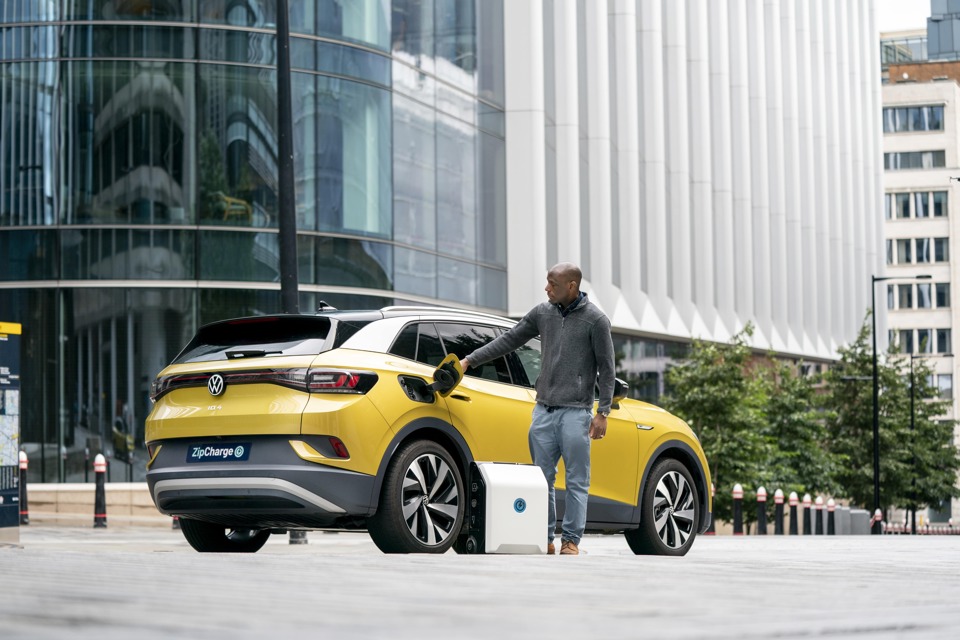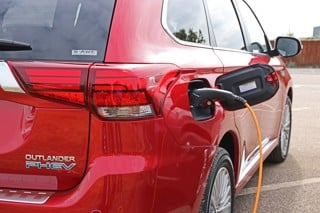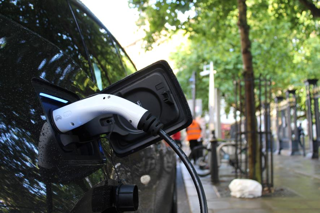ZipCharge has announced that its portable electric vehicle (EV) charger – the ZipCharge Go – is expected to be available to fleets in 2023.
The portable charger is now advancing to validation prototype (VP) stage with designs released for manufacture and hardware testing well underway.
The Go, says ZipCharge, removes a common barrier to EV ownership – by bringing the possibility of home charging to anyone who can not currently plug-in at their house.
ZipCharge co-founder Richie Sibal said: “Achieving this key milestone in the development of the portable EV charger is a major achievement by our small and dedicated team of expert automotive engineers.
“Drawing on the team’s 170 years of experience in designing automotive electronic systems, including EV control systems, battery modules, power electronics, electrical architectures, functional safety and wiring systems, combined with significant expertise in CAD modelling and design has enabled us to progress from the drawing board to design release in under nine months.”
In the UK alone, 8.5 million or 40% of car-owning households are without designated or off-street parking, says ZipCahrge.
Elsewhere, this figure reaches 60% for example in Italy, Spain, Hong Kong, Singapore and South Korea and in major cities in the USA, China and India.
ZipCharge co-founder Jonathan Carrier said: “We’re already in advanced discussions with a number of large corporate fleets and listening to their requirements, along with product suggestions from our enthusiastic prospective customer base.
“This feedback is invaluable as part of ongoing development of our hardware and software, such as novel operating controls, safety features, and auxiliary power generation.”
The company’s engineers are currently at advanced stages of lab testing the portable EV charger’s key system components, including the NMC lithium-ion battery cells and the ZipCharge-designed bi-directional AC-DC converter. This is to evaluate thermal behaviour, charging performance, safety, durability and full functionality to ensure a seamless and safe ownership experience for everyday charging.
The bespoke compact and lightweight bi-directional AC-DC converter utilises the latest high efficiency Silicon Carbide (SiC) semiconductors found in modern EVs.
When coupled with ZipCharge’s innovative software it will enable the Go to be charged at home, using a standard single phase supply in just over one hour. It can then be connected to an EV wherever it is parked and deliver 20 to 40 miles of range in around 30-60 minutes, depending on the capacity of the Go charger.
In the future, ZipCharge’s portable EV powerbanks will create an intelligent energy management platform that provides flexibility and resilience for the national power grid.
In tandem with hardware testing, the ZipCharge engineering team is also developing control software and a dedicated mobile application that will allow users to optimise the operation of the portable EV powerbank.
This incorporates a suite of security features, including user authentication and the ability to remotely monitor, track and disable the Go charger from their mobile phone, anywhere, thanks to built in 2G/4G connectivity.
The diverse needs of personal customers and fleet users are also being considered, to schedule charging, track usage and cost to charge, regardless if they have access to one Go charger or several hundred.
Cost benefits for fleet managers
The amount of control will generate significant operational and cost benefits for fleet managers who will be able to equip their fleets of electric cars and light commercial vehicles (LCVs) with portable chargers, enabling them to charge wherever they park, says ZipCharge.
The company is developing software tools that provide the user with intelligent control of charging and energy management, efficiently and at the lowest cost.
This includes dedicated data dashboards for fleets to manage a suite of Go chargers, optimise deployment, monitor charging history while using the power of data to make intelligent recommendations that reduce operating costs and improve the total cost of ownership equation.
ZipCharge is also building in machine learning and Artificial Intelligence (AI) into its software stack, to learn user charging patterns, to make schedule recommendations and optimise charging to save money and reduce the load on the grid.
Carrier said: “We are committed to launching a truly ground-breaking product in the Go, one that meets the needs of a range of customer groups, and how they would like to use the Go.
“This includes private individuals, fleets and end-destinations, such as hotels, retail complexes, supermarkets and leisure activities – all locations where the ZipCharge Go can provide flexible, convenient and low-cost charging for everyone, anywhere they park.”
He added: “We expect to confirm final pricing later this year in Q4 2022 as part of the pre-order process. Our mission is to democratise EV charging, which means the ZipCharge Go will be competitively priced and comparable to the purchase and full installation cost of a fixed home charger.”
> Interested in comparing electric vehicle data? Check out our EV tool.
> Interested in ensuring the efficient use of EVs. Check out our dedicated editorial sections: Insight & policy | EV news | Charging & infrastructure | Costs & incentives | Benefit-in-kind | EV case studies | EV road tests
























Login to comment
Comments
No comments have been made yet.